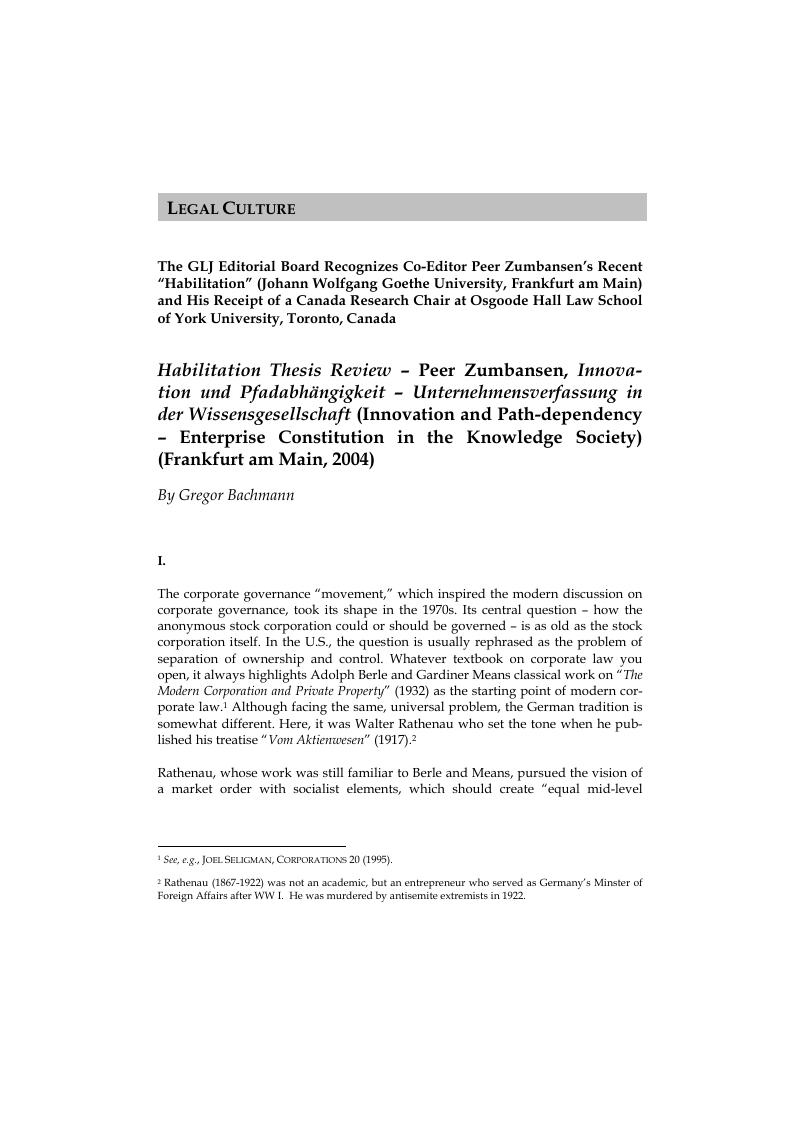No CrossRef data available.
Article contents
The GLJ Editorial Board Recognizes Co-Editor Peer Zumbansen's Recent „Habilitation„ (Johann Wolfgang Goethe University, Frankfurt am Main) and His Receipt of a Canada Research Chair at Osgoode Hall Law School of York University, Toronto, Canada - Peer Zumbansen, Innovation und Pfadabhängigkeit – Unternehmensverfassung in der Wissensgesellschaft (Innovation and Path-dependency – Enterprise Constitution in the Knowledge Society) (Frankfurt am Main, 2004)
Published online by Cambridge University Press: 06 March 2019
Abstract

- Type
- Legal Culture
- Information
- Copyright
- Copyright © 2004 by German Law Journal GbR
References
1 See, e.g., Joel Seligman, Corporations 20 (1995).Google Scholar
2 Rathenau, (1867-1922) was not an academic, but an entrepreneur who served as Germany's Minster of Foreign Affairs after WW I. He was murdered by antisemite extremists in 1922.Google Scholar
3 Rathenau, , Von kommenden Dingen, in Schriften und Reden 94 (1964). The vision has been kept alive ever since. After WW II it was transformed in to the (less socialist) concept of “soziale Marktwirtschaft” (social market economy). Again, the aim was (and is) to create “wealth for everyone,” as Ludwig Erhard, the architect of Germany's post-war “Wirtschaftswunder” put it. In reality, it is (still) reflected in comparatively lower payments for German managers: Until very recently management compensation has been no topic in the German corporate debate.Google Scholar
4 Gierke, O. v. (1841-1921), next to Carl Friedrich von Savigny, is the most famous and most influential legal scholar in 19th Century Germany. He employed a socio-historical method and is considered an ancestor of legal sociology in Germany.Google Scholar
5 See Selznick, Law, Society, and Industrial Justice (1969). Selznick's work had a notable influence on German legal scholars, among them Zumbansen's academic teacher Gunther Teubner (see, Teubner, Organisationsdemokratie und Verbandsverfassung (1978)).Google Scholar
6 Gesetz zur Kontrolle und Transparenz im Unternehmensbereich – KonTraG v. 27.4.1998.Google Scholar


